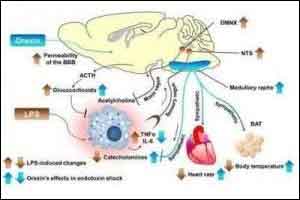- Home
- Editorial
- News
- Practice Guidelines
- Anesthesiology Guidelines
- Cancer Guidelines
- Cardiac Sciences Guidelines
- Critical Care Guidelines
- Dentistry Guidelines
- Dermatology Guidelines
- Diabetes and Endo Guidelines
- Diagnostics Guidelines
- ENT Guidelines
- Featured Practice Guidelines
- Gastroenterology Guidelines
- Geriatrics Guidelines
- Medicine Guidelines
- Nephrology Guidelines
- Neurosciences Guidelines
- Obs and Gynae Guidelines
- Ophthalmology Guidelines
- Orthopaedics Guidelines
- Paediatrics Guidelines
- Psychiatry Guidelines
- Pulmonology Guidelines
- Radiology Guidelines
- Surgery Guidelines
- Urology Guidelines
Treatment of Septic Shock in Resource-Limited Settings

Recommendations for haemodynamic assessment and support in sepsis and septic shock in resource-limited settings are largely lacking.In order to fill this void Recommendations for haemodynamic assessment and support in sepsis and septic shock in resource-limited settings have been developed by a task force of six international experts in critical care medicine with extensive practical experience in resource-limited settings.All the members of task force have extensive bedside experience in resource-limited intensive care units, reviewed the literature and provided recommendations regarding haemodynamic assessment and support, keeping aspects of efficacy and effectiveness, availability and feasibility and affordability and safety in mind.
- Using capillary refill time, skin mottling scores and skin temperature gradients and a passive leg raise test to guide fluid resuscitation.
- Recommend crystalloid solutions as the initial fluid of choice.
- Recommend initial fluid resuscitation with 30 ml/kg in the first 3 h, but with extreme caution in settings where there is a lack of mechanical ventilation
- Recommend against an early start of vasopressors; suggest starting a vasopressor in patients with persistent hypotension after initial fluid resuscitation with at least 30 ml/kg, but earlier when there is lack of vasopressors and mechanical ventilation;
- Recommend using norepinephrine (noradrenaline) as a first-line vasopressor;
- Suggest starting an inotrope with persistence of plasma lactate >2 mmol/L or persistence of skin mottling or prolonged capillary refill time when plasma lactate cannot be measured, and only after initial fluid resuscitation;
- Suggest the use of dobutamine as a first-line inotrope;
- Recommend administering vasopressors through a central venous line and suggest administering vasopressors and inotropes via a central venous line using a syringe or infusion pump when available.
For further Reference log on to :
Transactions of The Royal Society of Tropical Medicine and Hygiene,https://doi.org/10.1093/trstmh/try007

Disclaimer: This site is primarily intended for healthcare professionals. Any content/information on this website does not replace the advice of medical and/or health professionals and should not be construed as medical/diagnostic advice/endorsement or prescription. Use of this site is subject to our terms of use, privacy policy, advertisement policy. © 2020 Minerva Medical Treatment Pvt Ltd